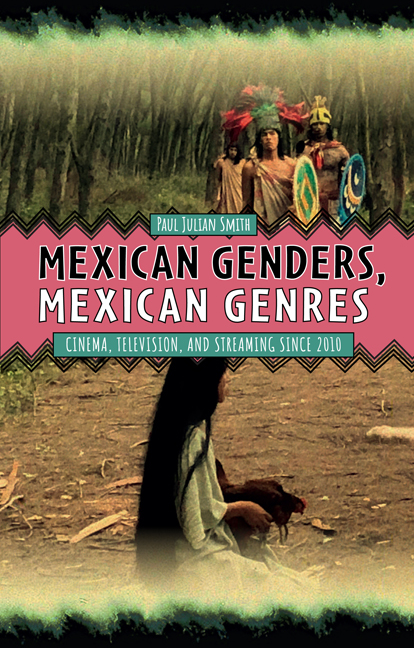Coda: The Anti-Roma: Cinema, Television, Streaming
Published online by Cambridge University Press: 09 February 2021
Summary
MIRRORING MEXICAN SOCIETY?
In 2019 a fiction feature premiered at Morelia that became known as the “anti-Roma.” Xquipi’ Guie’dani / El ombligo de Guie’dani (“Guie’dani's Navel”) tells the story of a modern-day mother and daughter who travel to Mexico City from their village in Oaxaca to live and work as domestic laborers in a rich family's home. It was said by the Mexican press to be the “antithesis” of Cuarón's much-heralded masterpiece that had been released by Netflix just months earlier (Ramírez).
El ombligo de Guie’dani was on the same subject as Roma and engaged the same fraught intersection of gender, class, and ethnicity. It also featured dialogue in an indigenous language (in this case Zapotec, not Mixtec). But now the domestic worker protagonist was openly rebellious, reflecting what the director, Xavi Sala, called “the warlike spirit” of the women of her community (Ramírez). In presenting the film at Morelia, where it was described as a “mirror of Mexican society,” the Alicante-born director went further, suggesting a kinship between his experience as a native Catalan speaker and that of indigenous people, who are likewise socially excluded by a hegemonic Spanish language that is not their own (Aranza Flores). Meanwhile, back in Spain, El ombligo de Guie’dani would win an award at the Huelva festival, acclaimed as the film that best captured the “reality” of Latin America today (Ramírez).
Clearly, whatever its intrinsic merits, El ombligo de Guie’dani raises thorny institutional or ideological questions that I treated in my chapter on festivals: the problem of Europeans who serve as gatekeepers to what counts as Latin American cinema at home and abroad; and that of individual films that, when they circulate in the North, are made to stand in for complex countries and lengthy cinematic traditions. Yet the evident common ground between festival film El ombligo de Guie’dani and Netflix original Roma must make us question the status of a feature that is generally experienced as an exceptional title by a unique director. The aim of this final chapter, or coda, is similarly to recontextualize Cuarón's film, habitually isolated as an Oscar-winning sensation, within Mexican cinema and Mexican multimedia.
- Type
- Chapter
- Information
- Mexican Genders, Mexican GenresCinema, Television, and Streaming Since 2010, pp. 157 - 188Publisher: Boydell & BrewerPrint publication year: 2021



